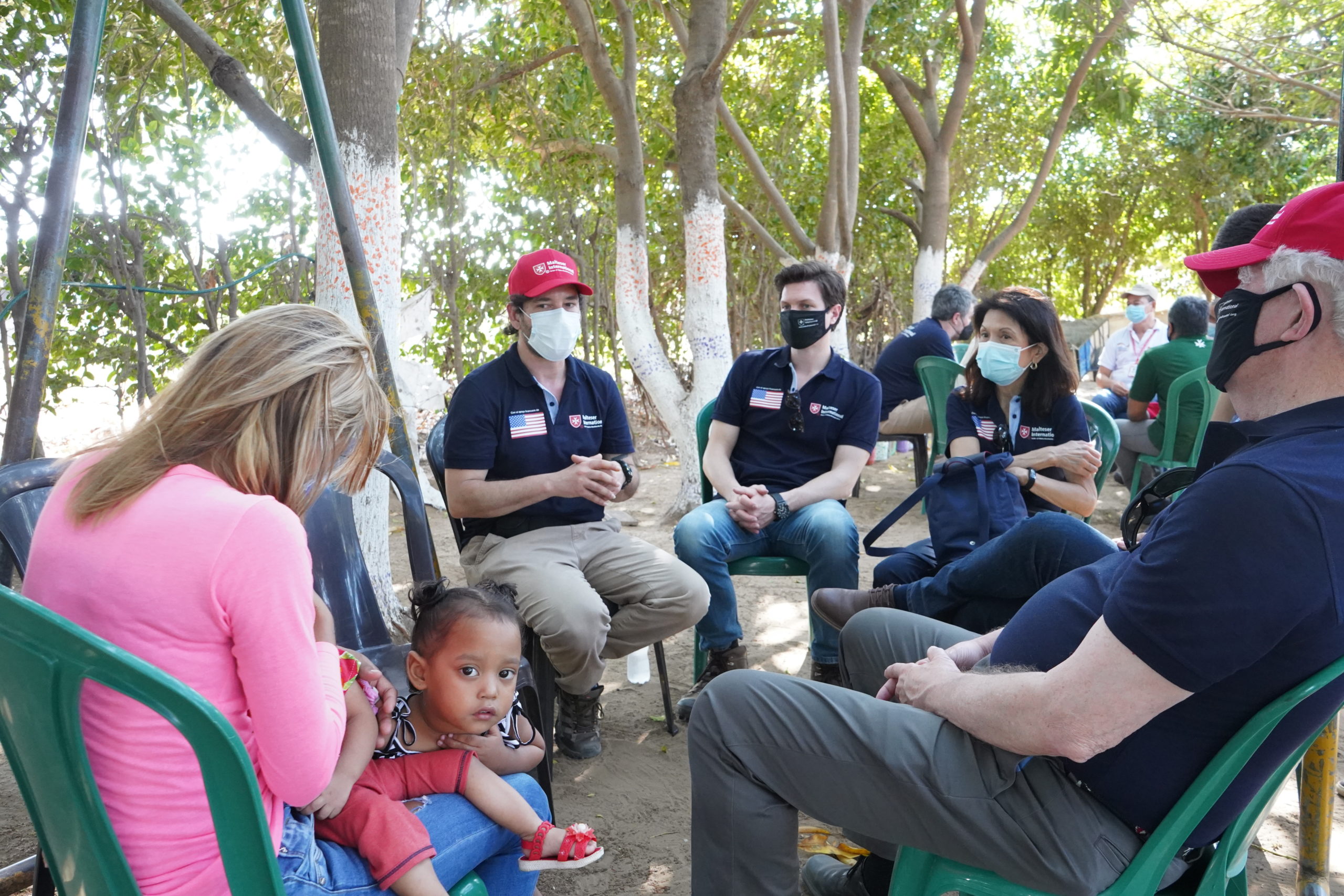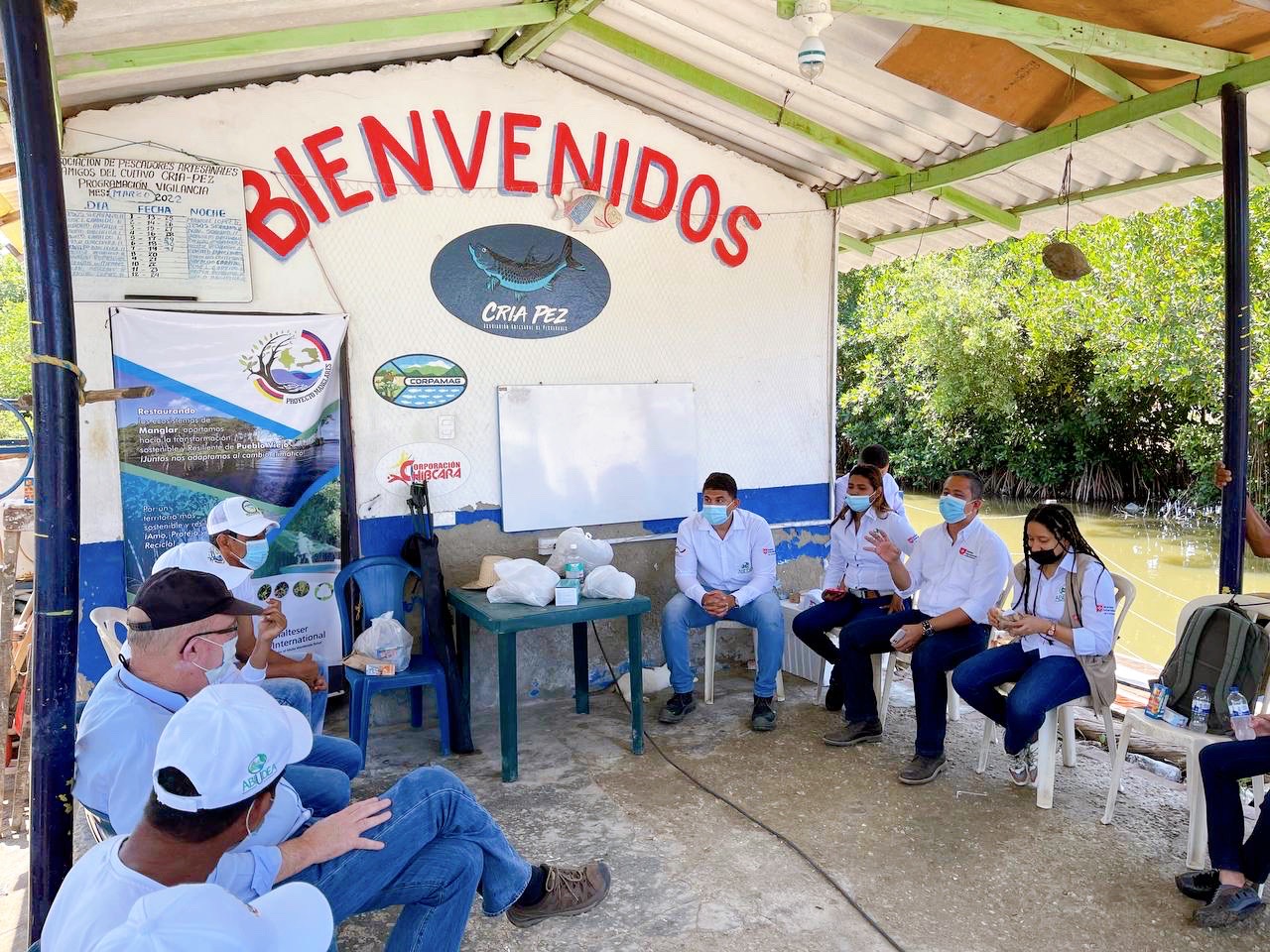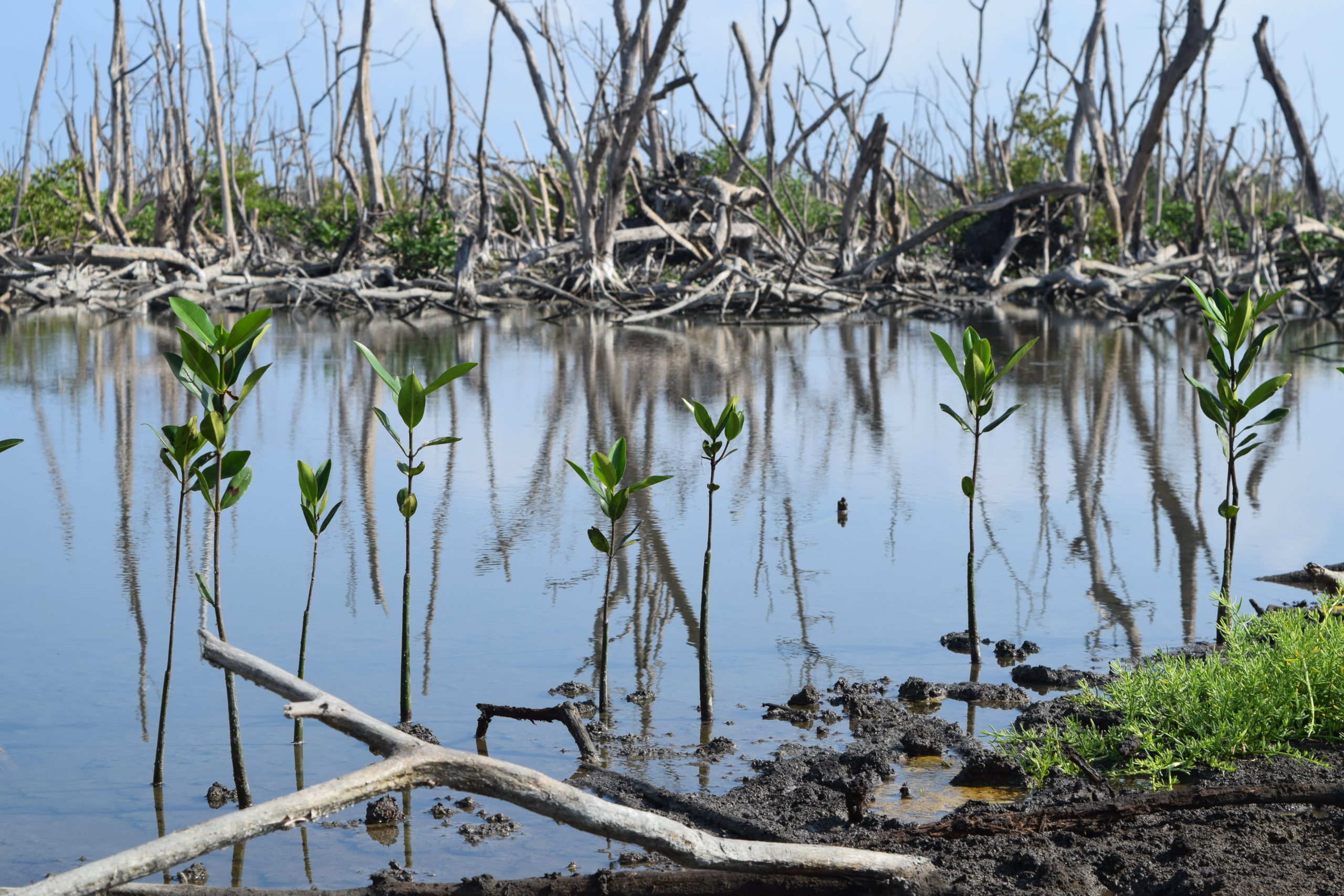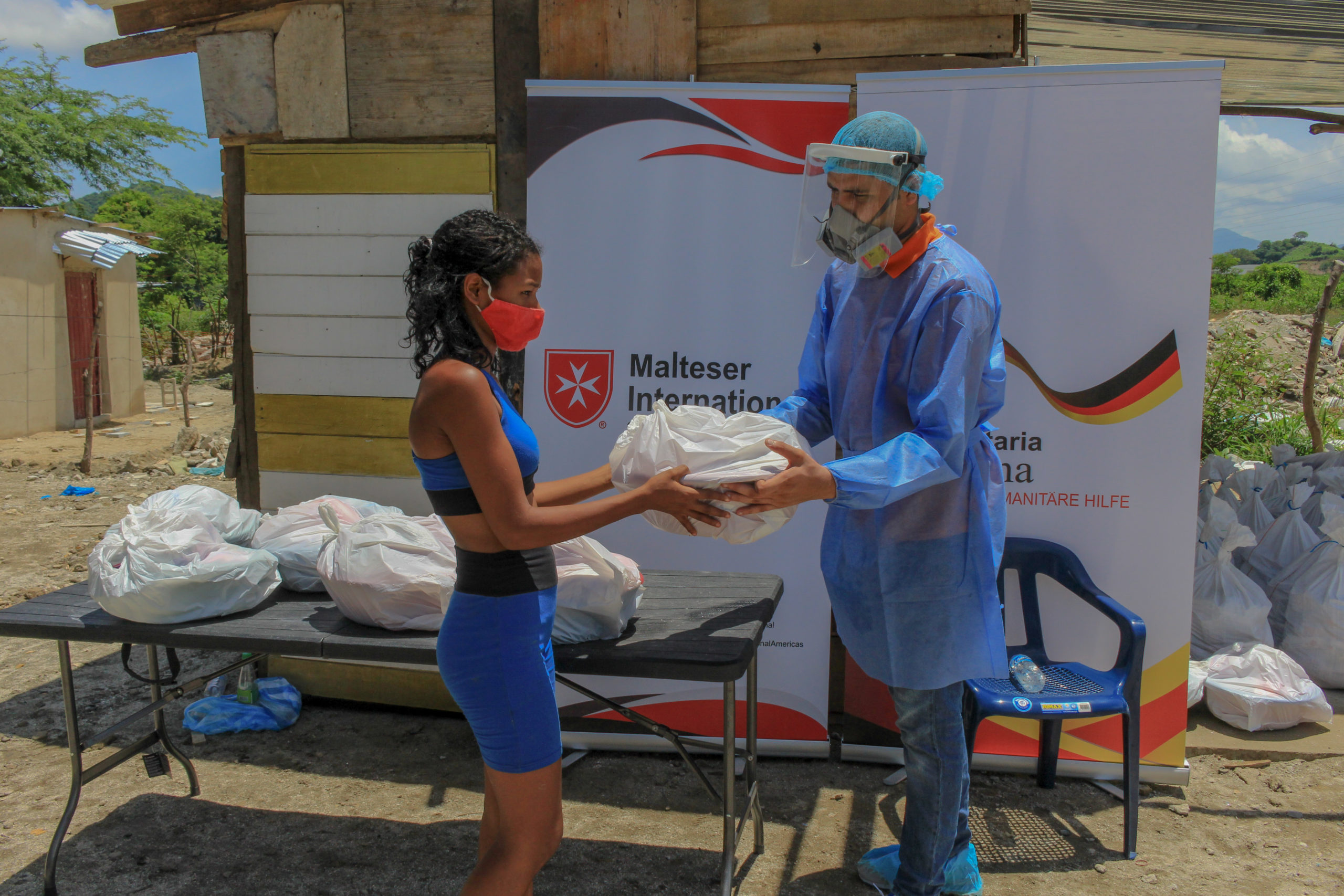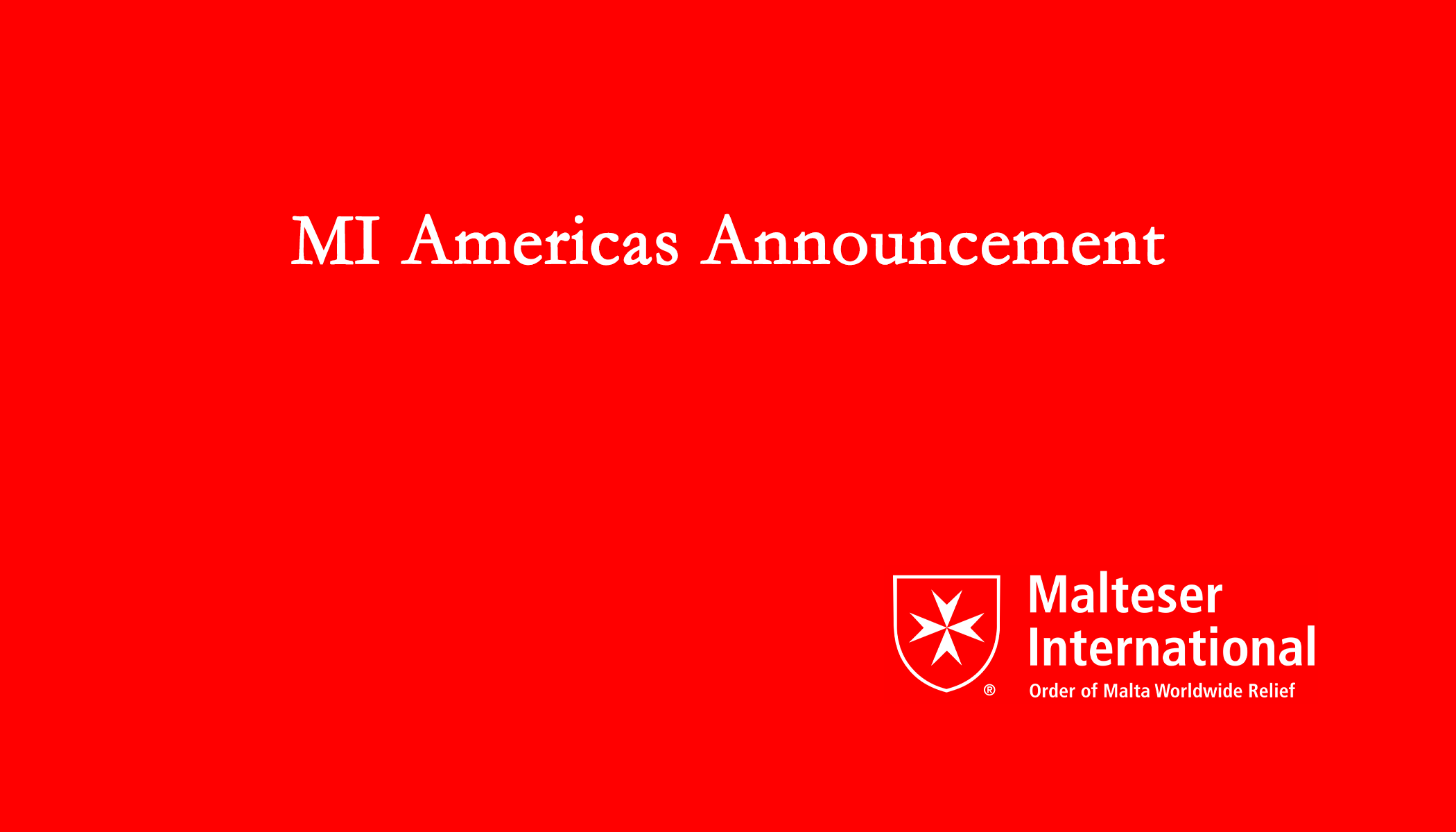South America
Board Dispatch: The Sovereign Order of Malta: Driving the UN’s Sustainable Development Goals into a Reality
A Visit to La Guajira Highlights Malteser’s Commitments to the Sustainable Development Goals
By Marissa del Rosario-Blackett, DM

I am extremely proud to be part of the Sovereign Order of Malta’s humanitarian relief organization, Malteser International (MI). While MI, the Order’s various Relief Organizations, and members of our Order are in Poland, Slovakia, Hungary and other bordering countries providing food, shelter, health care and psychosocial support to Ukrainian refugees, MI Americas’ operations in Colombia represent one of the largest commitments to provide an integrated system that meets several of the UN’s Sustainable Development Goals (SDGs) — goals which UN Member States agreed to achieve by 2030 for a world free of poverty, hunger, and disease. As a member of the Sovereign Order of Malta’s delegation to the UN, I had always been curious about how MI fared in meeting these goals, so I decided to set up a personal tracking device (shown in italics).
 We visited several multi-ethnic (Colombian, Venezuelan, and Wayuu) communities which varied in needs and size (600-800 people). We spoke in small groups to many residents, learned about their plight, and heard their aspirations.
We visited several multi-ethnic (Colombian, Venezuelan, and Wayuu) communities which varied in needs and size (600-800 people). We spoke in small groups to many residents, learned about their plight, and heard their aspirations.
In El Pasito, Riohacha with the support of USAID, all receive assistance in water, sanitation, and hygiene. In addition, to address tensions created by overcrowding, MI Americas built housing for migrants and refugees and repaired the homes for the original inhabitants. This project was done in partnership with BMZ (Germany’s Federal Ministry for Economic Cooperation and Development), and additional housing are planned for the near term. (SDG #6, #9, #10, #17)
Our Heritage
Since its founding in 1050, the Sovereign Order of Malta has served the poor and the sick. In Colombia, MI Americas carries on this tradition with our local Wayuu partner IPSI Anashiwaya at two medical clinics which provide the full range of primary health care services for free. All medical facilities assist in registering migrants and refugees for recognition by the Colombian government, which will enable them to legally work, apply for benefits, and even attend university. (SDG #3, #8, #10, #11, #17)
 The Riohacha clinic has a large neonatal and post-natal care constituency. Over 140 babies are safely delivered each month to a population which historically has a shocking 50% infant mortality rate.
The Riohacha clinic has a large neonatal and post-natal care constituency. Over 140 babies are safely delivered each month to a population which historically has a shocking 50% infant mortality rate.
A mobile brigade specializes in the delivery of care to women and children suffering from malnutrition. MI Americas ensures each child’s full recovery, medical support, parent nutritional training, and food kits for the entire family. We met with clinic patients and staff in several locations who shared successes as well as heart-wrenching stories.
In addition, primary care mobile clinics are dispatched to various camps to serve our beneficiaries. The one shown below in Riohacha is run in partnership with the U.S. State Department’s Bureau of Population, Refugees, and Migration (PRM).
With our local partner, IPSI Anashiwaya, and the International Organization for Migration (IOM) and PRM, MI Americas recently opened the first psycho-social care facility staffed with a psychiatrist and psychologists to treat the most traumatized in the population. It is the first of its kind in Riohacha.
Sustainable Development Programs
In addition to our humanitarian relief programs, we also visited development programs ranging from enhanced farming projects, fishery management facilities, and mangrove restoration.
In Santa Marta, the fishery project MI Americas financed and developed with our local partner Asociacion de Biologos de la Universidad del Atlantico (ABIUDEA) and an association of local fishermen will facilitate production, distribution and sale of collateral fish products, such as smoked, processed and repurposed fish products, from fishermen’s catches which are not able to be sold “fresh”. This project will provide decent work and livelihood for about 1,200 people through harvesting, wholesale, and retail distribution systems. (SDG #1, #2, #8, #9, #12, #17)
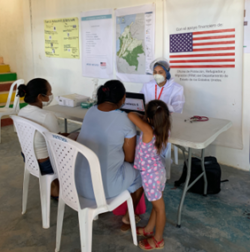 In Matitas, we visited one of several farms where MI Americas matches Venezuelan refugees with local Colombians, creating job partnerships and reducing inequalities. The farm introduces sustainable farming practices, increases food security, and produces more food for the local population. Enhanced farming techniques are introduced, and significantly more product is grown for sale in local markets (vs. export). The farm we visited initially only produced bananas, i.e., monoculture. Techniques were recently introduced to inter-plant additional crops, including mango and vegetables, which increases production, introduces sustainable farming practices, and eliminates the risks caused by monoculture. (SDG #1, #2, #8, #9, #10, #11, #12).
In Matitas, we visited one of several farms where MI Americas matches Venezuelan refugees with local Colombians, creating job partnerships and reducing inequalities. The farm introduces sustainable farming practices, increases food security, and produces more food for the local population. Enhanced farming techniques are introduced, and significantly more product is grown for sale in local markets (vs. export). The farm we visited initially only produced bananas, i.e., monoculture. Techniques were recently introduced to inter-plant additional crops, including mango and vegetables, which increases production, introduces sustainable farming practices, and eliminates the risks caused by monoculture. (SDG #1, #2, #8, #9, #10, #11, #12).
Finally, the mangroves. In one area alone, deforestation caused by the construction of a nearby highway eliminated 90% of the mangrove population over an area of hundreds of square kilometers, decimating the food source for approximately 10,000 people.
We visited several sites where MI Americas staff and our local partner ABIUDEA work with residents to educate them on the value of mangroves and teach them reforestation methods.
 A visit to a mangrove nursery aptly named “Cultivando Vida” (CultivatingLife) in Tasajera run by a group of women volunteers was my personal favorite. The women proudly showed us their various mangrove nurseries, most of which were located adjacent to their homes. They explained how their entire families participate as members of communities and how they inculcate the importance of raising environmental awareness among their children at a very young age. It was evident that the mangrove program gave them a strong sense of empowerment, and the community, a sense of purpose and cohesion. (SDG #5, #8, #11, #12)
A visit to a mangrove nursery aptly named “Cultivando Vida” (CultivatingLife) in Tasajera run by a group of women volunteers was my personal favorite. The women proudly showed us their various mangrove nurseries, most of which were located adjacent to their homes. They explained how their entire families participate as members of communities and how they inculcate the importance of raising environmental awareness among their children at a very young age. It was evident that the mangrove program gave them a strong sense of empowerment, and the community, a sense of purpose and cohesion. (SDG #5, #8, #11, #12)
MI Americas’ mangrove program will produce 11,000 plants this year and next year for replanting. This will be a very long range program but will gradually restore jobs and food sources. (SDG #4, #6, #8, #11, #13, #15, #17)
Back to the Future
A glimpse of the future was a mangrove at Cienaga Grande de Santa Marta, now a UNESCO Biosphere Reserve (right). The area is replete with fish and birds, the broad variety of species provides biodiversity. The fisherman/guide who paddled my canoe explained that the mangroves capture and store carbon dioxide, provide defense from rising sea levels and coastal erosion, and even filter water from pollutants. The benefits of mangroves and my guide’s explanation was impressive and demonstrated how awareness of the evolving ecology among the locals translates into a clear sense of environmental stewardship.
As my journey came to an end, and I tallied how many of the UN Sustainable Goals MI Americas met in its programs in Colombia, I was personally delighted to see a score of 16 out of 17 SDGs achieved, with only SDG #7 (Affordable Energy) missing. Seeing the UN’s SDGs become reality gave me a deeper appreciation for the value of each goal and why achieving them is critical for realizing the world we want — a world where no one is left behind. Through their collective implementation, MI Americas is not only making possible the promotion of peaceful and inclusive societies for sustainable development (#16), above all, we are helping to give joy, hope, and integrity to those the Sovereign Order of Malta is called to serve — the poor and the suffering.
For Malteser International, it’s not just a mission. It’s a culture of truly caring especially for those who feel the most forgotten.
